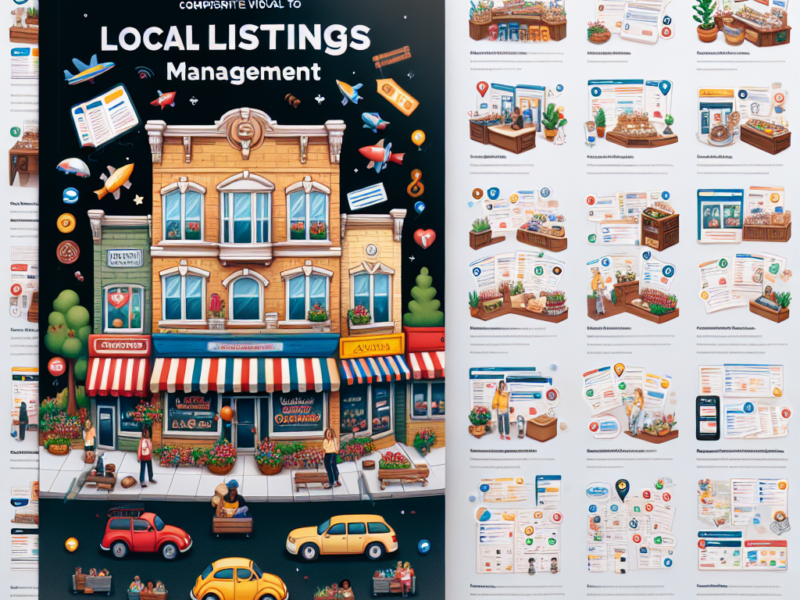Table of Contents
- Affiliate Marketing for Beginners: Getting Started
- Understanding Affiliate Marketing
- How Does Affiliate Marketing Work?
- Getting Started with Affiliate Marketing
- Step 1: Choose Your Niche
- Step 2: Research Affiliate Programs
- Step 3: Build Your Platform
- Step 4: Create Quality Content
- Step 5: Drive Traffic to Your Site
- Best Practices in Affiliate Marketing
- Disclose Your Affiliate Relationships
- Monitor and Optimize Your Performance
- Stay Updated on Trends
- Common Challenges in Affiliate Marketing
- Finding the Right Niche
- Building Traffic
- Maintaining Relevance
- Conclusion: Key Takeaways in Affiliate Marketing for Beginners
Affiliate Marketing for Beginners: Getting Started

Welcome to the exciting world of affiliate marketing! This comprehensive guide is designed to help beginners navigate the complexities of affiliate marketing, from understanding the basics to launching your first campaign. Whether you’re looking to supplement your income or build a full-time business, this article will provide you with the tools and knowledge you need to succeed in affiliate marketing.
Understanding Affiliate Marketing
Affiliate marketing is a performance-based marketing strategy where a business rewards one or more affiliates for each visitor or customer brought by the affiliate’s own marketing efforts. Essentially, it’s a way for companies to outsource part of their marketing to individuals or other companies, paying them a commission for the traffic or sales they generate.
How Does Affiliate Marketing Work?
Affiliate marketing involves three key players:
- The Merchant: Also known as the retailer or brand that wants to sell products or services.
- The Affiliate: Sometimes referred to as the publisher, the affiliate promotes the merchant’s products and tries to attract and convince potential customers of the value of the merchant’s offerings.
- The Consumer: The end user or customer who purchases the merchant’s products through the affiliate’s marketing efforts.
This tripartite relationship is facilitated by an affiliate network that connects merchants with affiliates and handles tracking and payments.
Getting Started with Affiliate Marketing
For beginners, starting in affiliate marketing can seem daunting, but by breaking it down into manageable steps, you can launch your affiliate marketing journey with confidence.
Step 1: Choose Your Niche
Selecting a niche is crucial because it determines the focus of your affiliate marketing efforts. A well-chosen niche should be something you are passionate about or have expertise in, and it should have a sufficient audience interested in it. Popular niches include health and wellness, technology, and personal finance, but the possibilities are endless.
Step 2: Research Affiliate Programs
Once you have your niche, the next step is to find affiliate programs that offer products or services related to your niche. Look for programs with a good reputation, high commission rates, and a track record of paying their affiliates on time. Some popular affiliate networks include Amazon Associates, Commission Junction (CJ), and ShareASale.
Step 3: Build Your Platform
Most affiliates use a website or blog to promote affiliate products. Your platform should be well-designed, user-friendly, and filled with high-quality content related to your niche. This could include blog posts, reviews, tutorials, and videos that will attract and engage your target audience.
Step 4: Create Quality Content
Your content is what will draw visitors to your site and convince them to click on your affiliate links. Focus on creating informative and engaging content that provides real value to your audience. This could involve detailed product reviews, informative blog posts, or engaging videos that help your audience solve problems or make better purchasing decisions.
Step 5: Drive Traffic to Your Site
Even the best content is useless if no one sees it. Use a variety of strategies to drive traffic to your site, including SEO (search engine optimization), PPC (pay-per-click advertising), email marketing, and social media marketing. Each of these channels has its strengths and can be very effective if used properly.
Best Practices in Affiliate Marketing
To maximize your success in affiliate marketing, consider the following best practices:
Disclose Your Affiliate Relationships
Transparency is key in building trust with your audience. Make sure to disclose your affiliate relationships clearly and prominently on your site. This not only builds trust but is also required by the FTC in the United States.
Monitor and Optimize Your Performance
Regularly check the performance of your affiliate campaigns and look for ways to improve. This could involve tweaking your ads, trying new affiliate programs, or refining your content strategy. Use analytics tools to track your progress and make data-driven decisions.
Stay Updated on Trends
Affiliate marketing is a rapidly evolving field, and staying updated on new trends and technologies can give you an edge over the competition. Subscribe to industry blogs, join relevant forums, and participate in webinars and conferences to keep your knowledge fresh.
Common Challenges in Affiliate Marketing
While affiliate marketing offers numerous opportunities, it also comes with its own set of challenges:
Finding the Right Niche
Choosing a niche that is too broad or too competitive can make it difficult to establish a foothold. Conduct thorough research to find a niche that offers a good balance of interest and competition.
Building Traffic
Generating consistent traffic to your site can be challenging, especially when you’re just starting out. Focus on proven traffic-building strategies like SEO and content marketing and be patient; it can take time to see results.
Maintaining Relevance
The needs and interests of your audience can evolve, and products can become outdated. Keep your content and product offerings fresh by staying in tune with your audience and the market.
Conclusion: Key Takeaways in Affiliate Marketing for Beginners
Affiliate marketing can be a lucrative and rewarding online business model for beginners. By understanding the basics, choosing the right niche, finding suitable affiliate programs, and creating a robust platform and quality content, you can set yourself up for success. Remember to drive traffic to your site, adhere to best practices, and stay adaptable to changes in the market.
With dedication and persistence, affiliate marketing can provide not only a significant income but also the flexibility to work from anywhere in the world. Start your journey today and take your first steps into the world of affiliate marketing!


